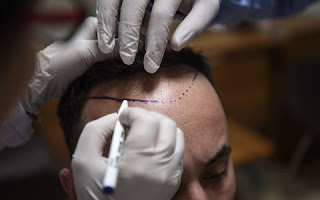Getting a hair transplant during the monsoon season might have some pros and cons. Here's a breakdown of the potential factors to consider:
Pros:
Reduced Sun Exposure: The monsoon season often brings cloudier and cooler weather, which can help in avoiding excessive sun exposure that can potentially harm the newly transplanted hair follicles.
Less Sweating: Cooler temperatures during monsoon months can lead to reduced sweating, which can be beneficial for the healing process as excessive sweating can potentially disrupt the grafts' healing.
Reduced UV Exposure: UV radiation from the sun can be harmful to healing skin and grafts. Cloudy weather during monsoons might provide a break from intense sun exposure.
Cons:
Humidity: Monsoon seasons can be quite humid, and high humidity levels can increase the risk of infection and slow down the healing process. Maintaining good hygiene and following the post-operative care instructions becomes even more important.
Risk of Infection: Excessive moisture due to rain and humidity can increase the risk of infection if proper post-operative care isn't followed. This includes keeping the scalp clean and dry.
Limited Activities: After a hair restoration in Islamabad, you're generally advised to avoid strenuous activities, heavy sweating, and exposure to water for a certain period. During the monsoon season, it might be challenging to adhere to these restrictions, especially if you're caught in unexpected rain.
Limited Sunlight: While reduced sun exposure can be beneficial, some amount of sunlight is important for general healing and well-being. Limited exposure to natural light can impact your mood and overall health.
Precautions:
If you decide to undergo a hair transplant during the monsoon season, here are some precautions to consider:
Follow Post-Operative Care: Strictly adhere to the post-operative care instructions provided by your surgeon. This includes cleaning your scalp gently and keeping it dry.
Maintain Hygiene: Due to increased humidity and moisture, there's a higher risk of infection. Pay special attention to maintaining a clean scalp and avoiding touching the grafts with dirty hands.
Avoid Rain and Water Exposure: Protect your scalp from rain and water, as water exposure can potentially dislodge grafts or lead to infection. Use a protective cap or umbrella when going out.
Consult Your Surgeon: Consult with your hair transplant surgeon before deciding. They can provide personalized advice based on your specific case and the local climate.
Consider Timing: If possible, schedule your transplant toward the beginning or end of the monsoon season to minimize the risk of heavy rainfall and humidity.
Remember that everyone’s situation is unique, and it's important to discuss your plans with a qualified hair transplant surgeon in Peshawar who can provide personalized recommendations based on your needs and the local climate conditions.
